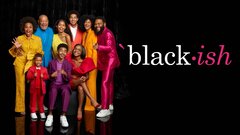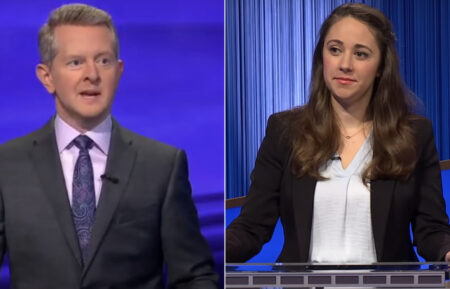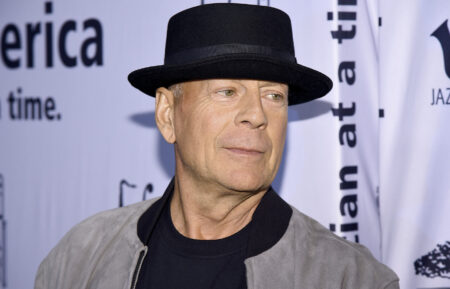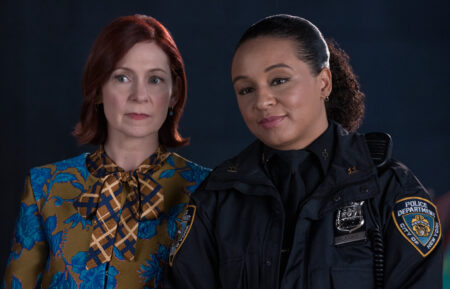Going Out in Style: ‘Black-ish’ Team Shares Their Favorite Behind-the-Scenes Stories
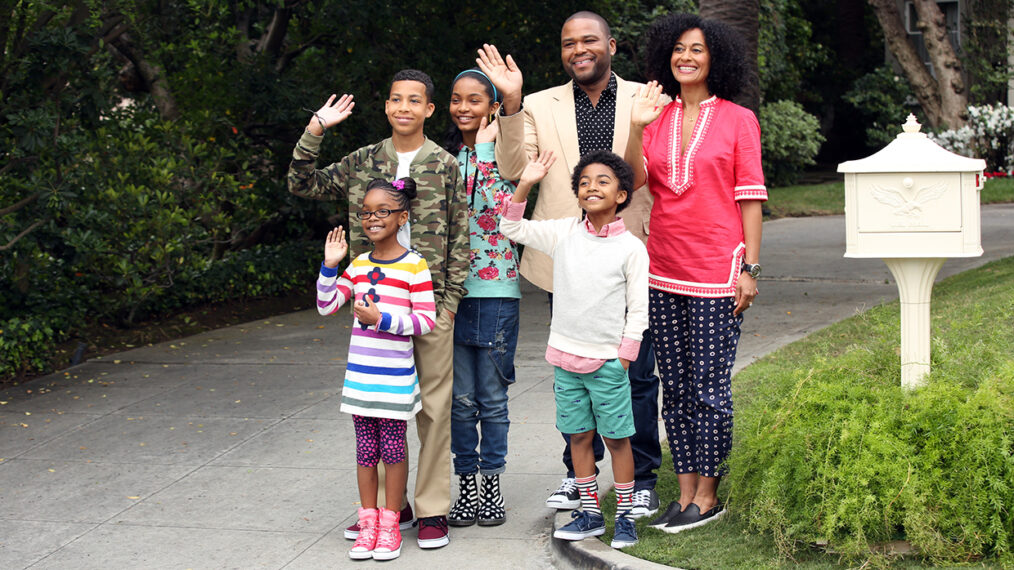
Preview
“It just feels like a lifetime ago,” says Anthony Anderson when looking back on eight seasons and 175 episodes of his ABC comedy black-ish. Since 2014, the sitcom set the TV bar to Norman Lear heights, bringing laughs plus social commentary via the tight-knit Johnsons, led by Anderson as high-strung father Andre and Tracee Ellis Ross as his grounded M.D. wife, Rainbow. Viewers related to Dre and Bow as they raised their five kids — trendy eldest Zoey (Yara Shahidi), clueless Junior (Marcus Scribner), curious twins Jack (Miles Brown) and Diane (Marsai Martin), and joyful baby Devante (August and Berlin Gross). Adding a third-generation perspective were Dre’s parents, stoic Pops (Laurence Fishburne), and free spirit Ruby (Jenifer Lewis).
As the Johnsons pack up (the series wraps April 19), we spoke to the cast and exec producers to get the full-ish story.
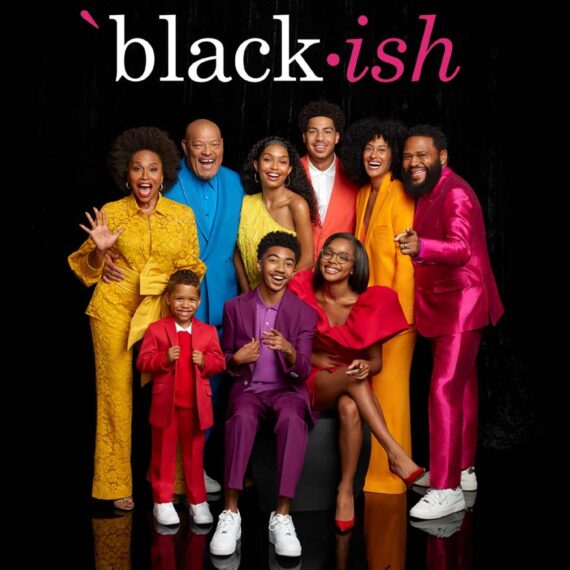
(Credit: ABC)
The Spark
Like most sitcoms, black-ish’s inspiration was based in reality, particularly the family of series creator Kenya Barris.
Anthony Anderson: Kenya and I sat down at a place called Laurel Hardware [in West Hollywood], in a chance meeting, and talked about what was missing from the landscape of television for us as viewers. We’re huge Norman Lear fans and grew up watching All in the Family, Good Times, and The Jeffersons. We just started talking about our own families. Both of us were the only African American families in our neighborhoods.
Kenya Barris: Really, I just stole my family’s life. My wife’s a doctor, and my kids started going to private schools.
Anderson: A couple weeks after that meeting, Kenya said, “Anthony, I have an idea for our show.”
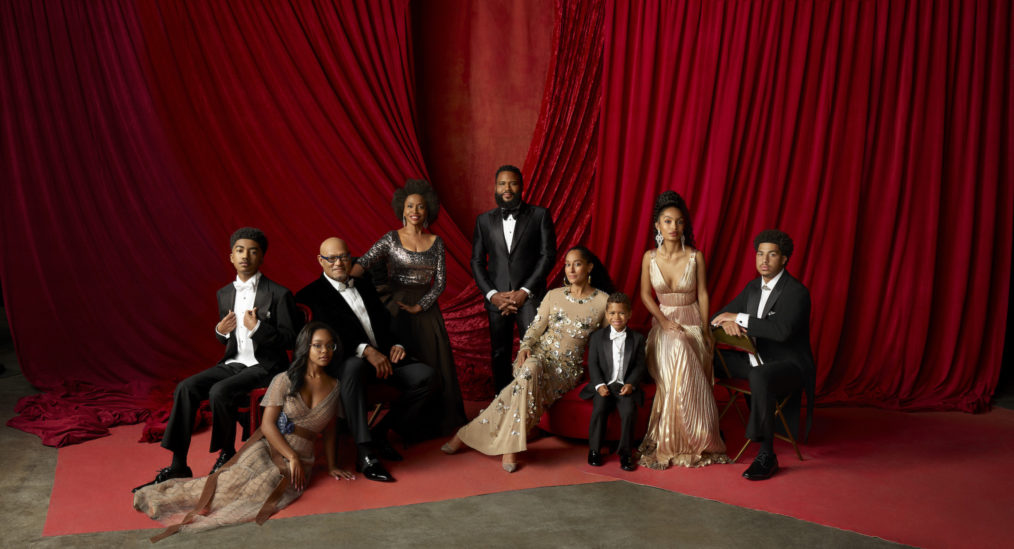
black-ish Ending After 8 Seasons on ABC (Credit: ABC/Dario Calmese)
Anatomy of a Family
With Anderson in, the next step became putting together the right cast.
Barris: The show really took wing when Laurence Fishburne decided to come on. He hadn’t [starred in a sitcom] before and really embraced the idea.
Tracee Ellis Ross: Kenya was a writer on Girlfriends. I auditioned because even though it was written for me, they wanted to make sure I could handle Anthony Anderson. I went in on Valentine’s Day.
Anderson: Tracee’s audition piece was a lie she told about seeing Roots. She had never seen Roots before, other than the roots in her head.
Ross: I think Bow and Dre were born in that moment.
Barris: This show fell into place. It felt like it was supposed to happen.
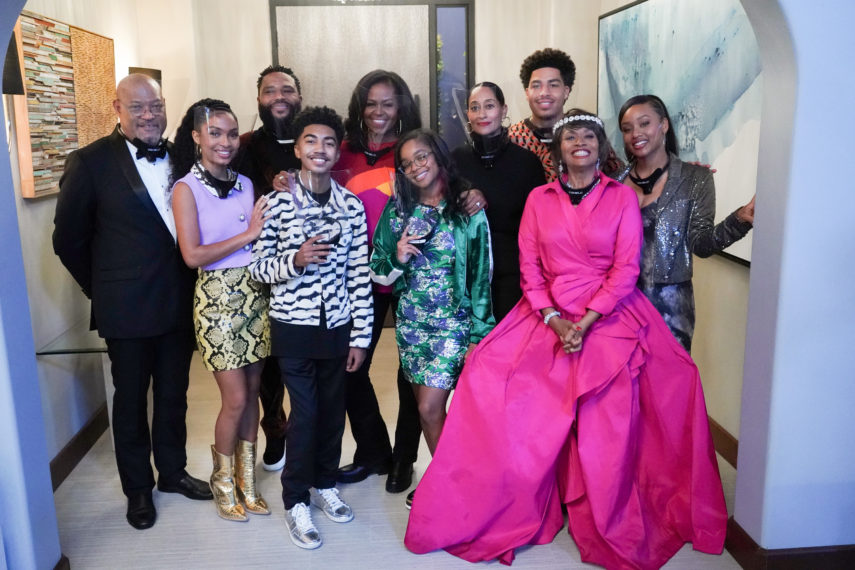
(Credit: ABC/Richard Cartwright)
Early Days
Finding out if viewers could connect with the family was paramount, and they did. In May 2014, ABC announced black-ish would be joining that fall’s lineup.
Anderson: I took the pilot around the country before the show was picked up by ABC. I showed it to several Fortune 500 companies, to all of their employees. Everyone said, “When I see your family onscreen, I see my family.” It came from [people of] every ethnic background you can imagine. That’s when I knew we had something special.
Barris: An ABC executive had said, “We should call it The Johnsons.” I said, “I will run off of a building if you call it that!” I had said my kids were “Black-ish,” and it stuck for us.
Ross: The Johnsons would not have done it justice.
Courtney Lilly (showrunner): By the time I got there, it was Labor Day 2014, and they were still in that nervous bubble right before the show premieres, wondering how it was going to go.
Curtain Up
On September 24, 2014, black-ish debuted, and 11 million viewers watched. Right away, the show took big storytelling swings.
Anderson: The pilot is the foundation from which all of this is laid.
Barris: One that always goes to my heart was the spanking episode [“Crime and Punishment,” Season 1, Episode 5], because that was based around my son. But the episode for us that really turned things was “The Nod” [Season 1, Episode 3, where Dre taught Junior about how Black men acknowledge one another in public]. It was an “inside baseball” moment.
Ross: With “The Nod” and the N-word episode [“The Word,” Season 2, Episode 1], I had 11-year-old boys in Larchmont [Los Angeles] coming up to me to talk about the show.
Barris: We got pushback the first season about a lot of the [big-issue] episodes, and then it became built into the show’s DNA.
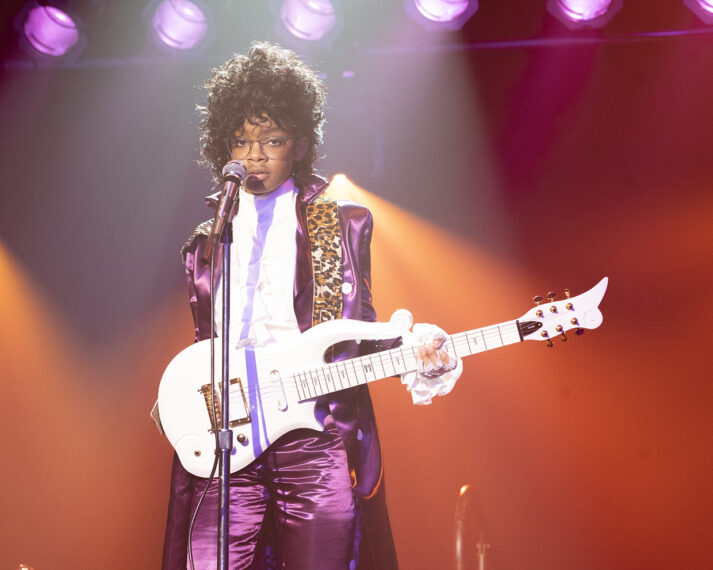
(Credit: Kelsey McNeal/Disney General Entertainment Content via Getty Images)
Answering the Call
In later seasons, the sitcom didn’t shy away from heavy topics. Season 2’s “Hope,” which tackled police brutality, and Season 4’s “Juneteenth” even earned re-airings by ABC.
Lilly: Once we started to get seen as a show that isn’t afraid of politics, something would happen and [I would be asked,] “What are you going to write about it?”
Miles Brown: “Juneteenth” was special because not only were we retelling the story of how Black people felt when we were told we were free, [but within a week of airing,] Apple added it as a holiday in their calendar, which made us all proud.
Marsai Martin: The one I related to most was the colorism episode [“Black Like Us,” Season 5, Episode 10], which is usually something only discussed within the Black community but is a global issue.
Jenifer Lewis: Black-ish made history with many powerful episodes. We were unafraid to take risks.
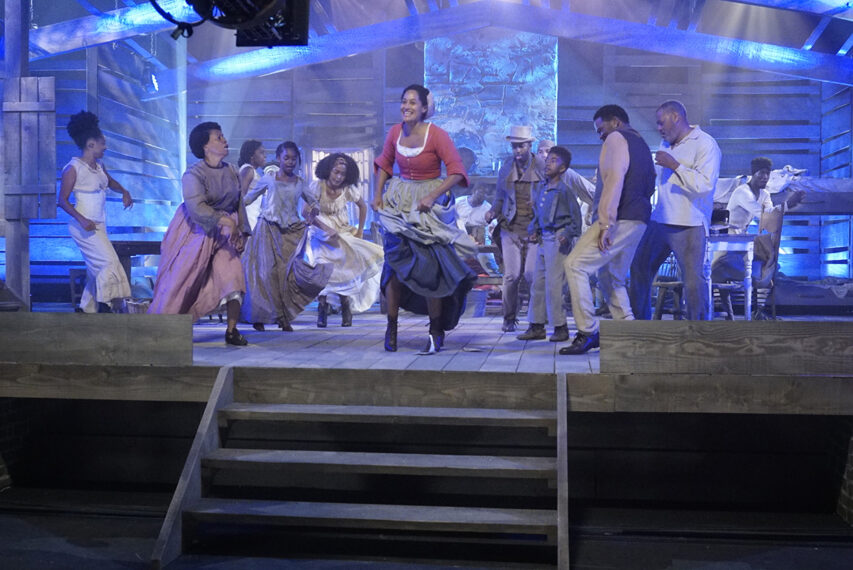
(Credit: ABC/Kelsey McNeal)
Different Worlds
In January 2018, the -ish universe expanded to grown-ish. The Freeform YA series, recently renewed for a fifth season, sent Zoey to Cal U. The short-lived series mixed-ish, which explored the early life of Bow (played by Arica Himmel), followed, airing on ABC from 2019 to 2021.
Barris: Zoey was always going to be the first one [to spin off], and I was like, “We should do [The Cosby Show spinoff] A Different World. We should do a version of how we take her [to college].”
Yara Shahidi: The 13-year-old I was when we started to the 22-year-old that I am now feel like two different humans, both as Yara and as Zoey.
Barris: Zoey was based on my daughter, Kaleigh. Kaleigh scared me, because she was so much cooler than I was. And that was sort of who Zoey was, like she was in a family she didn’t belong in.
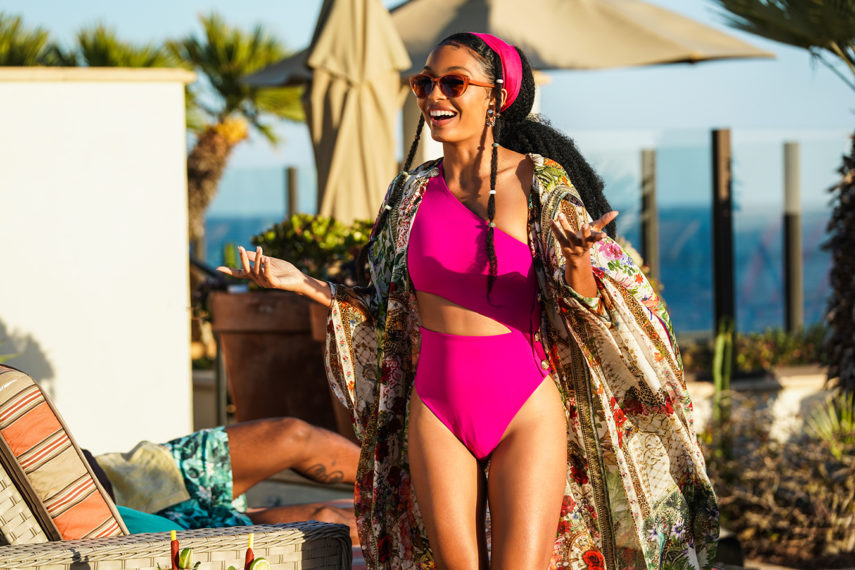
(Credit: Freeform/Eric McCandless)
Breaking Up
At the end of Season 4, black-ish shocked fans by temporarily splitting up Dre and Bow. It was a serious challenge for the duo.
Anderson: The genius of that arc was the uncomfortableness of these characters being in that space. For us to be at total odds was different, strange, weird.
Ross: Not only did the audience react, but Anthony and I reacted and were not happy about it. I will in hindsight say that Kenya was right. It was uncomfortable, but it came out really well.
Saying Goodbye
The series finale shot in November 2021. The episode, “Homegoing,” airs April 19, and Olympian Simone Biles guest stars. Look out for a theme from the pilot to return and a tearful moment between Dre and Bow.
Ross: I could barely shoot it.
Anderson: It was emotional. Not as emotional as I thought it would be, because we’d been preparing ourselves.
Ross: It was not as emotional because I took all your feelings! I was crying so hard.
Anderson: It didn’t hit me hard until weeks later. I can honestly say that the experience I’ve had working with Tracee has been everything I’ve ever wanted it to be as an actor.
Ross: I’m so proud of what we did. The flight and the dance I took with Anthony is one that was unexpected, honestly.
Barris: It’s interesting, I don’t think if we dropped [a show like] black-ish today, it would have the same impact.
Lilly: The pilot starts off with Dre talking about the American Dream. And it’s one of the things we deal with a lot during this final season, the idea of change.
Anderson: I would’ve liked to have seen the show go on a little while longer. But it’s better to leave and have the audience wanting more.
Ross: I leave with so much joy and pride. We’re a beautiful example of what’s possible when you tell honest stories that can make everybody laugh and show everybody a Black family is an American family.
Barris: Black-ish closed the walls around the fact that we all just want the same things. We love our kids. We want to be happy. And we’re all trying the best we can to do it.
black-ish, Tuesdays, 9:30/8:30c, ABC


